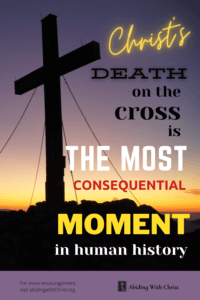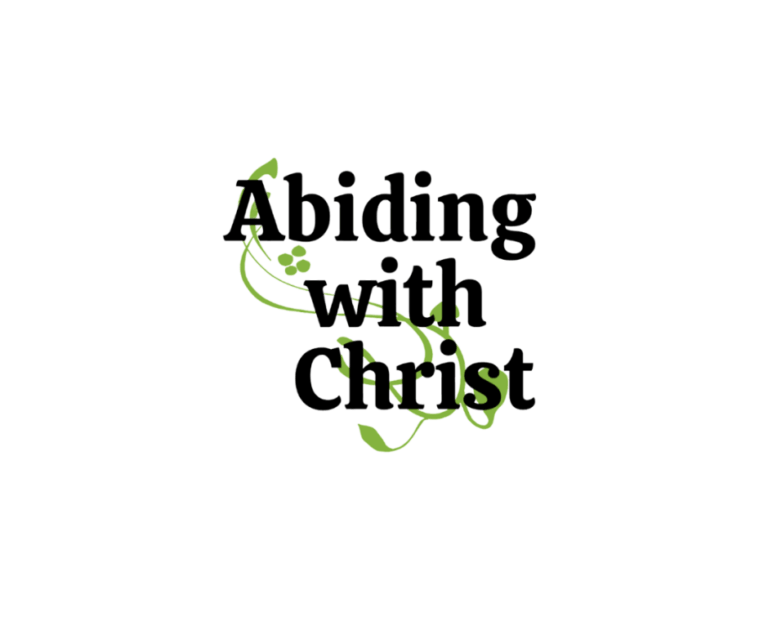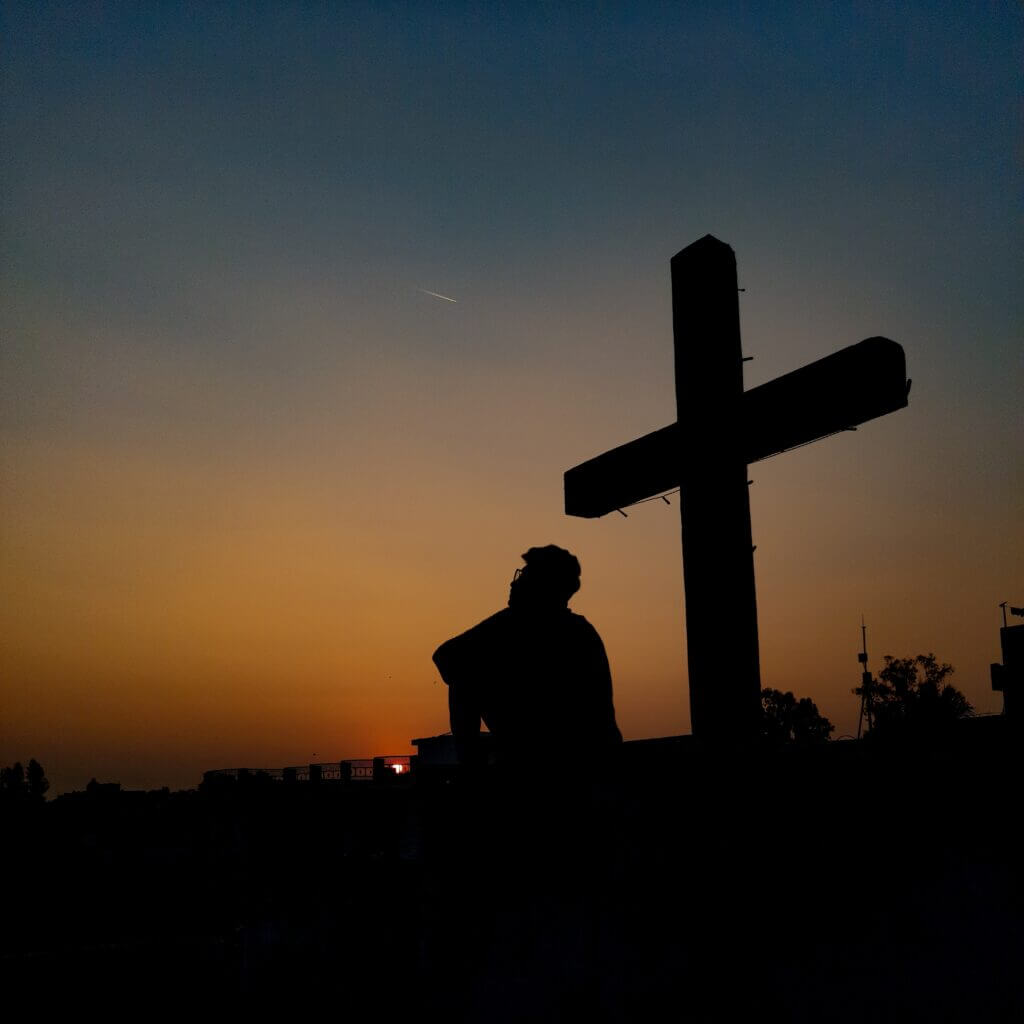Was Christ’s death on the cross necessary? The answer is an emphatic yes. Only by Christ’s death on the cross can our sins be forgiven.
Then Jesus uttered another loud cry and breathed his last. And the curtain in the sanctuary of the Temple was torn in two, from top to bottom. (Mark 15:37-38)
 Christ’s death on the cross is the most consequential moment in human history. When Jesus shed His blood, He paid the penalty for the sins of all of mankind. He did the will of His Father by willingly laying down His life.
Christ’s death on the cross is the most consequential moment in human history. When Jesus shed His blood, He paid the penalty for the sins of all of mankind. He did the will of His Father by willingly laying down His life.
But was Christ’s death on the cross necessary? Is that the only way that Jesus could have paid the penalty for sin?
The answer to the question “was the cross necessary” is yes. It was necessary because God had established long ago and for many centuries the path by which the sins of humankind would be paid for and through which God’s followers would be redeemed.
To further understand this truth, let us look to the Old Testament.
Christ’s Death on the Cross was Necessary to Satisfy the Law
The sacrificial system described in the Old Testament was a frequent, time-consuming core experience in the life of the Jewish people. There were multiple sacrifices covering different purposes.
Sin atonement offerings always included the shedding of blood. This covered or atoned for the sins of the people. The sacrifices performed for the atonement of sin were not considered permanent or everlasting.
When Jesus shed His blood on the cross, it was a “once-and-for-all” sacrificial blood atonement that God accepted for the sins of all mankind. It was through Christ’s death on the cross that He fulfilled the sacrificial law of God.
This is why Christ’s death on the cross was necessary – Jesus could not have paid the penalty for our sins in a path other than the one God had laid out for centuries prior. If Jesus had fallen for the temptations of Satan and chosen His own path, His death would not have been the sacrificial death that God had foreordained.
The same goes for the prayer Jesus prayed at the Mount of Olives prior to his arrest and execution. He asked God if there were any way possible He would not have to suffer the death that was soon to come (Matthew 26:39). Ever the obedient Son, Jesus Christ still said that He would obey His Father’s will. Had He been disobedient (setting aside for the moment whether or not that was possible – that’s an entirely different discussion), Jesus would have eventually died without fulfilling His mission.
Since Jesus came to earth as a human, He was destined to die eventually. But Christ’s death on the cross was necessary. So Jesus, in full obedience, walked the excruciating path that led to Calvary.
If one day we stand before God and He asks us how we expect to enter into eternal life, Jesus’ disciples won’t point to any personal goodness, religious association, or the like. They will claim the shed blood of Jesus Christ as the ransom for their sins, paid in full.
Does that last paragraph surprise you? If so, there may be some aspects of salvation in Jesus Christ worth exploring further.
The Significance of the Temple Curtain Being Torn
Matthew, Mark and Luke all mention the tearing of the temple curtain upon Christ’s death on the cross. The temple curtain kept the area within the Temple known as the “Holy of Holies” hidden from view and was several stories high.
Within the Holy of Holies, God’s glory dwelled among His people. There was only one person – the High Priest – who was allowed to enter once a year, on Yom Kippur when the atoning blood sacrifice for the Jewish people was given. Since nobody else was allowed to enter, the High Priest would enter the Holy of Holies with a rope tied to him. That way, if the High Priest were to die in God’s presence, he could be removed from the Holy of Holies.
The tearing of the curtain from top to bottom hints at a supernatural act. The significance of the tearing of the curtain was that now, through Christ’s blood sacrifice paying for our sins once and for all, it is possible for anyone – through Christ’s sacrifice – to have direct access to God. We can pray directly to God the Father and He hears us.
The new “temple” for disciples of Jesus Christ is our own bodies. It is not a building or a place. When we put our faith in Jesus Christ, He provides us with the Holy Spirit, who resides with our Spirit to guide is in the truth.
Christ’s Death on the Cross was Necessary for Everyone
Further, the tearing of the temple curtain signified that salvation was now available to everyone.
Christ’s death on the cross was necessary so the entire world may have a path to faith in Christ, both Jew and Gentile (1 Corinthians 1:24). Christ’s sacrifice satisfied the sin debt within and beyond Israel.
So yes, Christ’s death on the cross was necessary. It was God’s plan for the salvation of mankind, that only the Son of Man could fulfill. Everything that came before and after the moment Christ died points to that one moment in history.
Was the cross necessary? Yes – just as necessary as the empty tomb. Jesus Himself made sure we understood this by predicting His death and resurrection multiple times. It was the sign that He was indeed the Son of God to the entire world. A Jewish Savior that fulfilled Jewish prophecy might be explained away by anyone not a Jew. But God incarnate ensured that His death was for anyone who would believe, Jew and non-Jew alike (Romans 1:16).
Have you believed that Jesus is the Son of God? That He suffered death on the cross to pay the penalty for your sins? That He rose from the grave, conquering sin and death? Dedicated your life to following Him?
Christ’s death on the cross was necessary for everyone. That includes you. If you haven’t come to terms with that truth, do whatever it takes to consider that decision today.
More Bible verses about the necessity of Jesus’ death:
Isaiah 53:4-6; Romans 5:6-9; 1 Corinthians 1:18; 2 Corinthians 5:14-21; Galatians 3:13-14; Colossians 2:13-15; Hebrews 9:1-15






